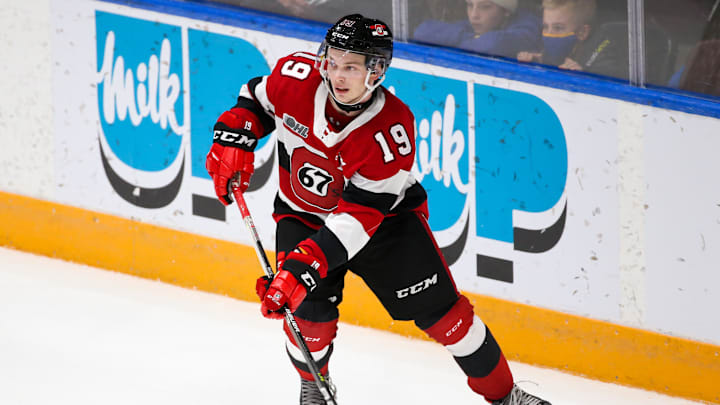Arizona State University has given a scholarship to Jack Beck to play this upcoming season with the Sun Devils. Beck’s older brother previously played for the team and is now under contract with the San Jose Sharks. ASU's young hockey program is making strides as this past year saw their first-ever first round draft pick, Cullen Potter, selected 32nd overall by the Calgary Flames.
Normally this would not be any noteworthy news. Then you realize where Jack Beck was playing last year. He already spent four years playing junior hockey and spent last season playing in both the ECHL and AHL with affiliates of the Pittsburgh Penguins. Players are now allowed to make the jump from juniors to the NCAA, a major change, but Beck is in his own category as a player who’s played professional, but minor league, hockey.
You might be wondering how this is even allowed? That question seemed to baffle even Frank Servalli and John Buccigross as they tweeted about the news. The conclusion seems to be the only league the NCAA counts as “professional” to the point of losing your college athletic eligibility is the NHL. That’s at least for now where it’s a major grey area loophole. If there’s no rule saying that it’s not specifically allowed, why shouldn’t it be?
On one hand it does allow the NCAA to attract “college-aged” players of high talent. On the other hand the NCAA has long banned players from any paid league. Yes, there’s always the open secret that some junior players get some type of payment (even if it’s still against the rules) under the table. There’s no doubt though that the AHL and ECHL are professional leagues where players are paid and make a career. Both leagues are also directly affiliated with the big league NHL that is still a no go for college hockey players.
Hockey isn’t the only NCAA sport that has a comparison. Baseball also has its own minor league system (granted more complex than hockey). If there’s NCAA was able to come up with governing rules for that, why can’t they with hockey? The more leagues that fall in this “grey area” the more problems can arise. What if a player spends time in an unaffiliated minor league such as the Federal Prospects Hockey League or Southern Professional Hockey Jockey League? One user on X, in response to the Jack Beck news, commented on how the SPHL rule book has specific exclusions about players who played in the NHL.
Let’s take it a step further. What if a player played in a major international league? What if a player decided to go to the KHL? Baseball had a similar circumstance a few seasons back when a top prospect turned down the long road of working his way through the minors for an instant paycheck in Japan after not coming to terms with the team that originally drafted him. What if a Russian player in his twenties decided to leave behind the KHL and play hockey stateside, would they be NCAA eligible?
If anything this shows NCAA rulings on hockey are incomplete at worst and antiquated at best. Maybe the ruling can be something as simple as if they’ve signed a professional contract with the certain leagues (Jack Beck’s contract wasn’t with the Penguins or the NHL). Maybe they’ll be time limit rules, for example if a player maintains eligibility if they played one or less of “professional” hockey below the NHL. Beck might be one of the first, but he won’t be the last, who tried to turn to college hockey with professional experience but without an NHL contract. Jack Beck was originally drafted in the sixth round of the 2021 NHL draft by the Calgary Flames.
